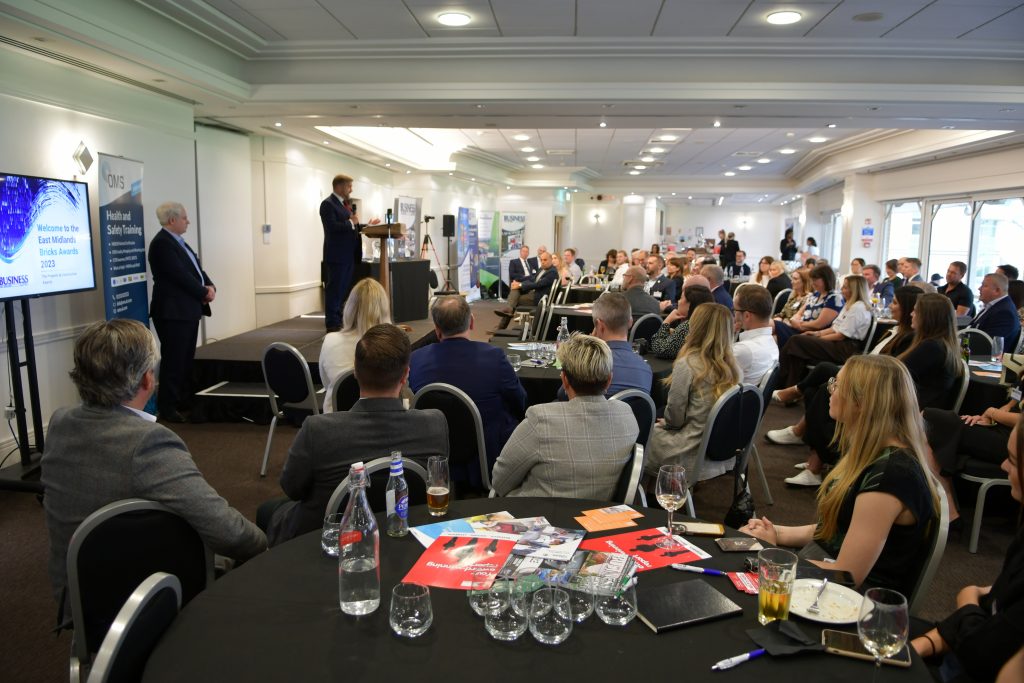On
Thursday 2nd October East Midlands Business Link’s prestigious
Bricks Awards will return to the Trent Bridge Cricket Ground to celebrate the region’s property and construction industry.
With
nominations open until Friday 15th August, and 10 categories available to enter, take this opportunity to showcase your projects and team, reward their hard work, and boost morale.
Amongst this year’s categories is
Architects of the Year, which can be entered
here.
Sponsored by
Roy Geddes Bricks, the winner of this award will be the architects who have had the greatest impact on the region, be it in a single development or a series of them. Originality, the ability to rise to a challenge or initiative shown in accomplishing a difficult brief, this award celebrates our architects. Schemes must have been completed over the last 12 months.
It’s
completely free to submit a nomination and making the top three finalists in your category also wins you free tickets to the awards ceremony.
Last year the award was won by Matthew Montague Architects, with IMA Architects and Design Haus Architecture runners up. Upon winning, Matthew Montague Architects said: “Winning the Architects of the Year at the Bricks Awards for the second consecutive year is an incredibly rewarding achievement for us at Matthew Montague Architects, and we are truly delighted.
“This award not only enhances our visibility in the industry but also serves as a powerful endorsement of our team’s dedication and creativity. It fosters trust with potential clients and showcases our capability to deliver outstanding projects across various sectors.”
Submit your nominations for Architects of the Year
here before entries close on
Friday 15th August.

Winners will be revealed at a glittering awards ceremony on
Thursday 2nd October, at the Trent Bridge Cricket Ground (4:30pm – 7:30pm) – an evening also offering an opportunity to establish new connections with property and construction professionals from across the region, and hear from keynote speaker Councillor Nadine Peatfield – Leader of Derby City Council, Cabinet Member for City Centre, Regeneration, Strategy and Policy, and Deputy Mayor of the East Midlands.
Other award categories open for entry include: Responsible Business of the Year, Developer of the Year, Sustainable Development of the Year, Commercial Development of the Year, Contractor of the Year, Excellence in Design, Deal of the Year, Most Active Agent, and Residential Development of the Year. All entry forms can be accessed
here.
The Overall Winner award will also be presented at the event. This award cannot be entered, with the winner selected from those nominated for the event’s other awards.
The Overall Winner of the East Midlands Bricks Awards 2025 will also receive a grand prize of a year of marketing/publicity worth £20,000, with the opportunity to split or gift the marketing to a charity of your choice.
The East Midlands Bricks Awards 2025
What: The East Midlands Bricks Awards 2025
When: Thursday 2nd October (4.30pm – 7.30pm)
Where: Derek Randall Suite,
Trent Bridge Cricket Ground, Nottingham
Keynote speaker: Councillor Nadine Peatfield – Leader of Derby City Council, Cabinet Member for City Centre, Regeneration, Strategy and Policy, and Deputy Mayor of the East Midlands
Tickets: Available
here
Dress code: Standard business attire
Thanks to our sponsors:










To be held at:









 Winners will be revealed at a glittering awards ceremony on Thursday 2nd October, at the Trent Bridge Cricket Ground (4:30pm – 7:30pm) – an evening also offering an opportunity to establish new connections with property and construction professionals from across the region, and hear from keynote speaker Councillor Nadine Peatfield – Leader of Derby City Council, Cabinet Member for City Centre, Regeneration, Strategy and Policy, and Deputy Mayor of the East Midlands.
Other award categories open for entry include: Responsible Business of the Year, Developer of the Year, Sustainable Development of the Year, Commercial Development of the Year, Contractor of the Year, Excellence in Design, Deal of the Year, Most Active Agent, and Residential Development of the Year. All entry forms can be accessed
Winners will be revealed at a glittering awards ceremony on Thursday 2nd October, at the Trent Bridge Cricket Ground (4:30pm – 7:30pm) – an evening also offering an opportunity to establish new connections with property and construction professionals from across the region, and hear from keynote speaker Councillor Nadine Peatfield – Leader of Derby City Council, Cabinet Member for City Centre, Regeneration, Strategy and Policy, and Deputy Mayor of the East Midlands.
Other award categories open for entry include: Responsible Business of the Year, Developer of the Year, Sustainable Development of the Year, Commercial Development of the Year, Contractor of the Year, Excellence in Design, Deal of the Year, Most Active Agent, and Residential Development of the Year. All entry forms can be accessed 













